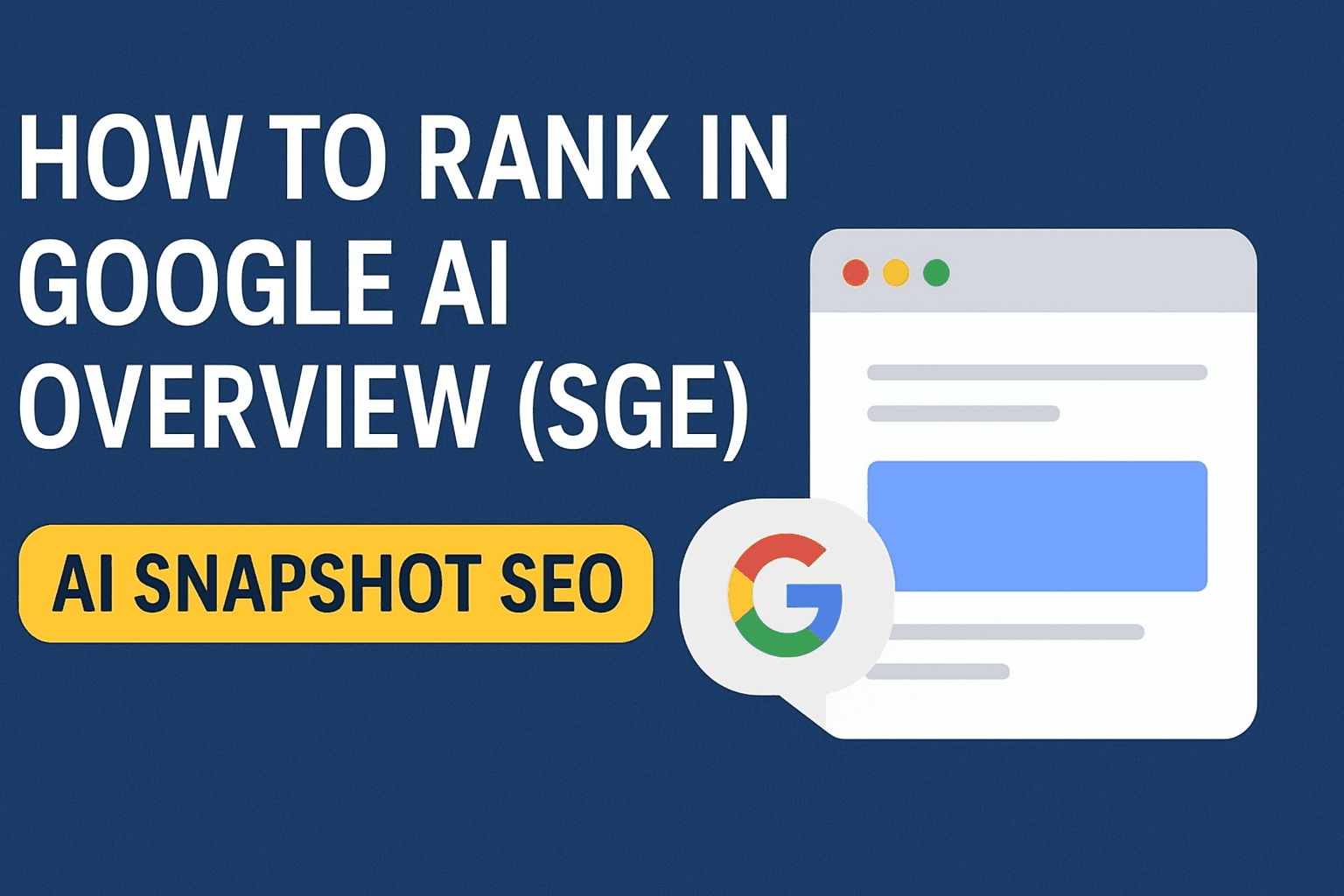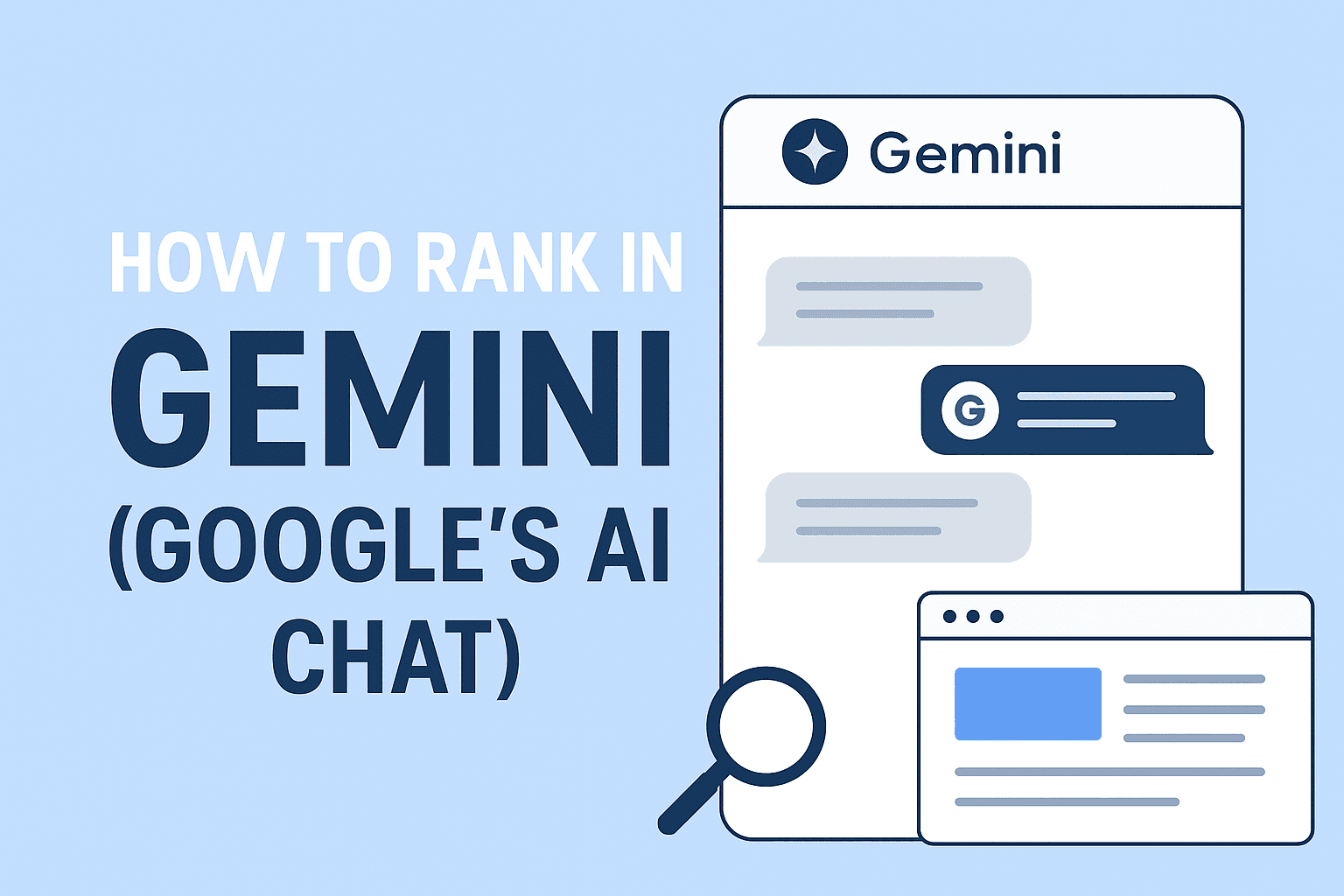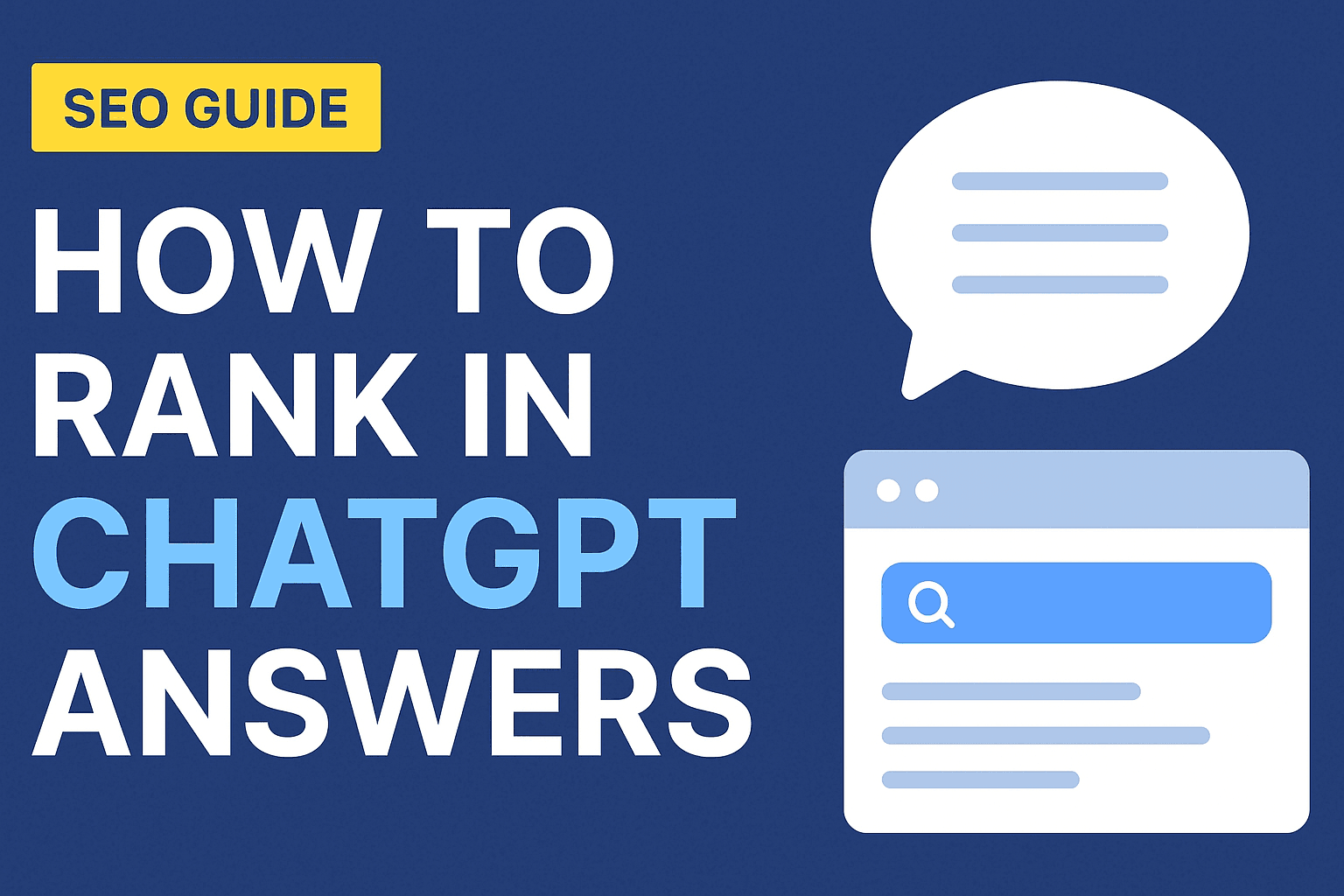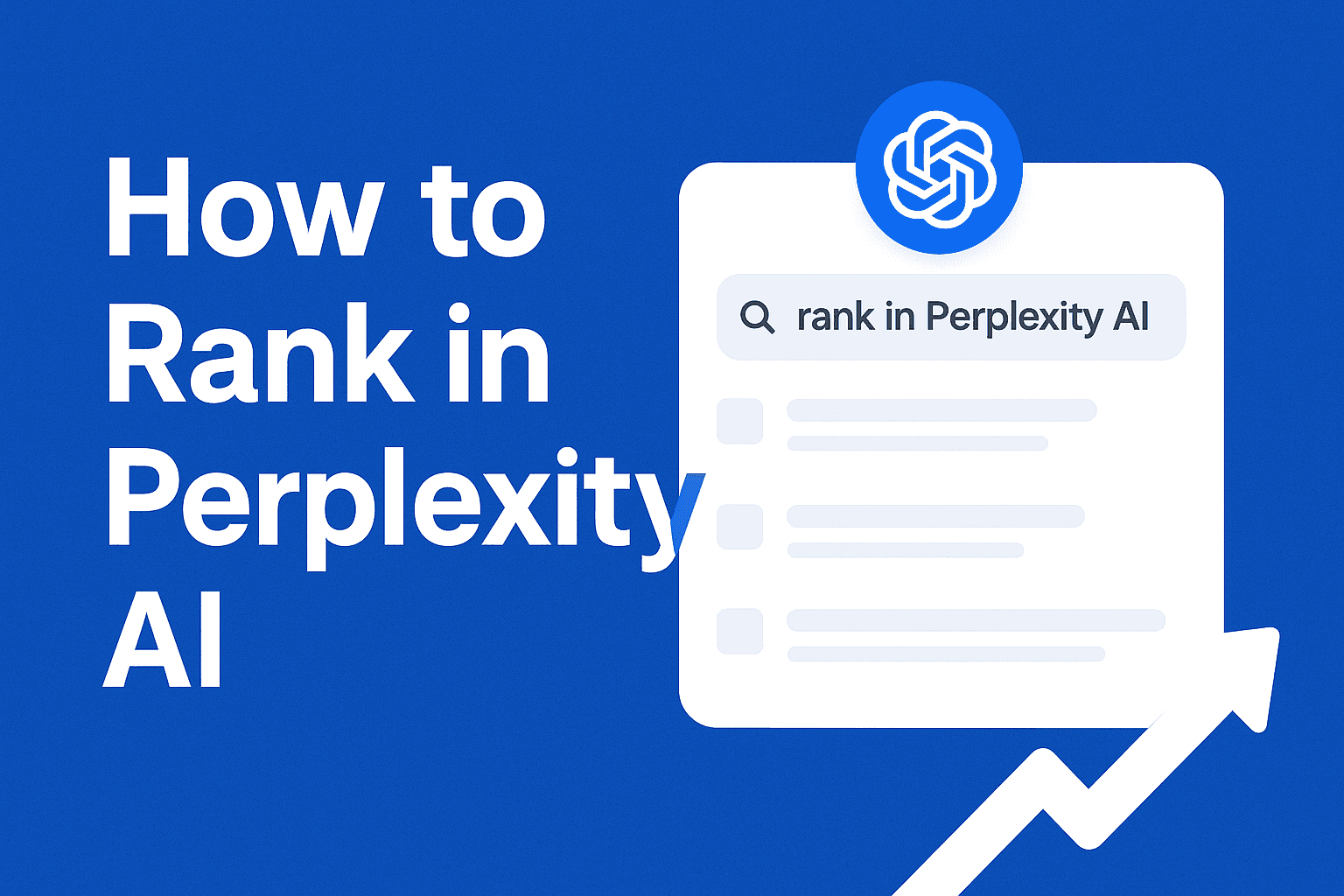AI Search Optimization: How to Rank in the Age of Conversational Search

Table of Contents
The rise of large language models (LLMs) and generative AI is reshaping the way people find information online. Traditional SEO still matters, but the rules are changing. Users are no longer typing short queries into Google only—they're asking ChatGPT, Gemini, Perplexity, and Google's AI Overview for direct answers. This shift requires a new discipline: AI search optimization.
In this guide, we'll explore what AI search optimization is, how it differs from classical SEO, why major AI search engines matter, and what strategies you can use to rank in the age of conversational search.
1. What Is AI Search Optimization?
AI search optimization is the practice of structuring, writing, and publishing content so it can be surfaced, cited, or summarized correctly by AI-powered search engines and conversational assistants.
Unlike traditional SEO, which focuses on ranking a webpage in the "blue links" of Google's SERPs, AI search optimization focuses on making your content:
- Discoverable by AI systems (via crawling, APIs, or training data).
- Credible enough to be cited by AI models in answers.
- Relevant to conversational queries, not just keyword-based searches.
Key Differences from Traditional SEO
- Queries are conversational, not keyword-heavy. Instead of "best SEO tools 2025," a user might ask: "What's the best SEO tool for small businesses this year?"
- Answers are summarized, not listed. Instead of ten blue links, AI often provides one synthesized response.
- Source attribution matters more. When AI tools cite sources (e.g., Perplexity), they tend to pick authoritative, clear, and structured content.
Want to optimize your content for AI?
Our AI-friendly audit tool can analyze your content and suggest improvements.
Get Your Free AI Audit2. Why AI Search Engines Matter
2.1 ChatGPT
OpenAI's ChatGPT is widely used not only as a chatbot but also as an information gateway. With integrations into Microsoft Bing and the option to browse the web, it can cite and link back to content. Ranking in ChatGPT requires:
- High-quality, clear explanations.
- Content that aligns with how humans ask natural-language questions.
- Visibility in Bing search results (as ChatGPT often pulls from Bing).
2.2 Google Gemini
Gemini is Google's flagship LLM, integrated into Search and Workspace tools. For SEO professionals, Gemini matters because:
- It enhances Google's AI Overview (SGE), which shows generated answers above traditional results.
- Structured data, schema markup, and E-E-A-T (Experience, Expertise, Authoritativeness, Trustworthiness) are key.
- Websites that demonstrate topical authority have higher chances of being cited in AI Overview.
2.3 Google AI Overview (SGE)
AI Overview (formerly called Search Generative Experience, SGE) is perhaps the most disruptive change to Google search in decades. Instead of a simple snippet, users get an AI-generated overview with source links.
Why it matters: Even if you're ranking #3 organically, if your content is included in AI Overview, you appear at the very top.
How to optimize: Clear answers, factually correct content, schema markup, and authority signals (backlinks, reviews, credentials).
2.4 Perplexity AI
Perplexity is an AI-powered search engine that emphasizes transparency and citations. Unlike ChatGPT, it consistently shows where its answers come from.
Why it matters: If your site is cited in Perplexity, you get direct referral traffic.
How to optimize: Publish unique insights, original data, and niche expertise. Perplexity values fresh, authoritative sources.
ChatGPT Visibility
See how your content performs in ChatGPT results compared to competitors.
3. Principles for Ranking in AI Search
3.1 Write for Conversational Queries
AI assistants understand context-rich questions. To optimize:
- Use FAQ sections with natural questions and answers.
- Target long-tail keywords like "how to rank in Google AI Overview" instead of just "Google SEO."
- Adopt a clear, human-like writing style (avoid jargon-heavy or keyword-stuffed text).
- Implement prompt engineering principles to align with how users actually ask questions.
3.2 Optimize for Authority and Trust (E-E-A-T)
AI search systems are trained to favor reliable content. That means:
- Experience: Share real-world examples, case studies, or expert quotes.
- Expertise: Show author credentials and domain expertise.
- Authoritativeness: Build backlinks from credible websites.
- Trustworthiness: Maintain accuracy, cite reputable sources, and keep content updated.
3.3 Structure Content for Machines and Humans
AI tools prefer content that's easy to parse. Best practices include:
- Clear H2/H3 subheadings with descriptive titles.
- Bullet points and numbered lists for scannability.
- Schema markup for FAQs, articles, reviews, and products.
- Alt text for images describing context.
- Implement strategic internal linking to establish topic clusters.
3.4 Publish Unique and Fresh Insights
AI systems don't need your generic definitions—they already "know" them. They prefer:
- Original research, surveys, or datasets.
- Case studies or industry examples.
- Niche perspectives or commentary that stands out.
3.5 Improve Technical SEO for AI Crawling
Even in AI search, technical SEO matters:
- Fast-loading, mobile-friendly pages.
- Accessible via robots.txt and sitemaps.
- Clean internal linking so crawlers understand topic clusters.
Ready to optimize your content for AI search?
Start with our comprehensive AI visibility audit and get actionable recommendations.
4. Future Trends in AI Search Optimization
4.1 AI as the New Front Page of the Web
Users will increasingly ask ChatGPT, Gemini, or Perplexity instead of searching Google. This means your website may never be "visited" unless AI tools surface and cite it.
4.2 Voice and Multimodal Search
With Gemini and GPT-4o, voice and image-based queries will rise. Optimizing for multimodal content (text, images, video, audio transcripts) will matter.
4.3 Direct Answers Over Links
Expect fewer clicks from SERPs as AI answers directly. The opportunity is to be the cited source within the generated answer, which drives higher-quality traffic even if overall traffic volume drops.
4.4 AI Search as a Ranking Signal
In the future, AI usage patterns may influence rankings—if users consistently prefer answers citing your site, search engines may boost your visibility organically.
Frequently Asked Questions
Conclusion: Winning in the Age of AI Search
AI search optimization is not the end of SEO—it's the next evolution. By focusing on conversational queries, authority, structured content, and unique insights, you can position your site as a trusted source for both humans and machines. Our ultimate guide to LLM SEO provides additional strategies to help you succeed.
The winners in this new era will be those who adapt early. If you want to stay ahead, don't just optimize for Google's blue links—optimize for the way AI explains, cites, and recommends content.
The age of conversational search is here. Are you ready to rank?
About the Author

Riadh Mahieddine
AI SEO Specialist



